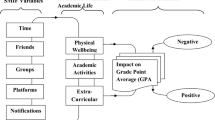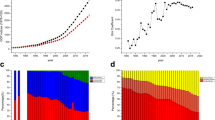Abstract
This study employs machine learning algorithms to predict the determinants of students’ academic performance in Somaliland using data from the 2021/2022 academic year. The educational landscape in Somaliland is characterized by challenges in implementing quality education, especially at the secondary level. This research aims to uncover factors influencing student performance in national secondary exams and compare the effectiveness of machine learning algorithms, including random forest, naive Bayes, and logistic regression. It utilizes a dataset encompassing 14,342 students and examines variables such as student residence, administrative region, school type, and gender. The results indicate that the random forest model outperforms other algorithms, achieving 73.8% accuracy in predicting student performance. The traditional logistic regression analysis further highlights the impact of region, residence type, and school type on academic outcomes. These findings contribute to understanding the factors affecting students’ performance in Somaliland and provide insights for educational policy and interventions.








Similar content being viewed by others
Data Availability
No datasets were generated or analyzed during the current study.
References
Battle J, Lewis M (2002) The increasing significance of class: the relative effects of race and socioeconomic status on academic achievement. J Poverty 6(2):21–35
Plan, Education Sector Strategic (2017) Republic of Somaliland ministry of education and higher studies
Abdi MK (2017) Institutional factors and student performance: a survey on public secondary schools in Hargeisa City, Somaliland. Int J Educ Res 5(3):45–54
Melesse T, Obsiye FA (2022) Analysing the education policies and sector strategic plans of Somaliland. Cogent Educ 9(1):2152545
Ali N, Jusoff K, Ali S, Mokhtar N, Salamat ASA (2009) The factors influencing students’ performance at Universiti Teknologi Mara Kedah, Malaysia. Management Science and Engineering 3(4):81
Bhutto ES, Siddiqui IF, Arain QA, Anwar M (2020) Predicting students’ academic performance through supervised machine learning. In: 2020 International Conference on Information Science and Communication Technology (ICISCT). IEEE, pp 1–6
Considine G, Zappalà G (2002) The influence of social and economic disadvantage in the academic performance of school students in Australia. J Sociol 38(2):129–148
General Certificate for Secondary Examination Report: GCSE Examination Report (2022). Office of the National Examination and Certification Board, Somaliland, Hargeisa (2022)
Tagliaferri L An introduction to machine learning (2017). https://www.digitalocean.com/community/tutorials/an-introduction-to-machinelearning. Accessed 23 Jun 2022
Lantz B (2015) Machine learning with R. Packt Publishing, Birmingham Mumbai
Doz D, Cotič M, Felda D (2023) Random forest regression in predicting students’ achievements and fuzzy grades. Mathematics 11(19):4129
Orji FA, Vassileva J (2022) Machine learning approach for predicting students academic performance and study strategies based on their motivation. Preprint at http://arxiv.org/abs/2210.08186
Conijn R, Snijders C, Kleingeld A, Matzat U (2016) Predicting student performance from LMS data: a comparison of 17 blended courses using moodle LMS. IEEE Trans Learn Technol 10(1):17–29
Pérez B, Castellanos C, Correal D (2018) Predicting student drop-out rates using data mining techniques: a case study. In: IEEE Colombian Conference on Applications in Computational Intelligence. Springer, pp 111–125
Urrutia-Aguilar ME, Fuentes-García R, Martínez VDM, Beck E, León SO, Guevara-Guzmán R et al (2016) Logistic regression model for the academic performance of first-year medical students in the biomedical area. Creat Educ 7(15):2202
Hosmer DW Jr, Lemeshow S, Sturdivant RX (2013) Applied logistic regression, vol 398. John Wiley & Sons, Hoboken, NJ
Makhtar M, Nawang H, Wan Shamsuddin SN (2017) Analysis on students performance using Naïve Bayes classifier. J Theor Appl Inf Technol 95(16)
Amra IAA, Maghari AY (2017) Students performance prediction using KNN and Naïve Bayesian. In: 2017 8th International Conference on Information Technology (ICIT). IEEE, pp 909–913
Jayaprakash S, Krishnan S, Jaiganesh V (2020) Predicting students academic performance using an improved random forest classifier. In: 2020 International Conference on Emerging Smart Computing and Informatics (ESCI). IEEE, pp 238–243
Nachouki M, Abou Naaj M (2022) Predicting student performance to improve academic advising using the random forest algorithm. International Journal of Distance Education Technologies (IJDET) 20(1):1–17
Griffiths K (2008) Evidence-based laboratory medicine: Principles, practice, and outcomes (2nd edn)
Florkowski CM (2008) Sensitivity, specificity, receiver-operating characteristic (ROC) curves and likelihood ratios: communicating the performance of diagnostic tests. The Clinical Biochemist Reviews 29(Suppl 1):83
Essa A, Ayad H (2012) Improving student success using predictive models and data visualisations. Res Learn Technol 20
Yağcı M (2022) Educational data mining: prediction of students’ academic performance using machine learning algorithms. Smart Learning Environments 9(1):11
Bitew FH, Nyarko SH, Potter L, Sparks CS (2020) Machine learning approach for predicting under-five mortality determinants in Ethiopia: evidence from the 2016 Ethiopian demographic and health survey. Genus 76:1–16
Holzinger A (2019) Introduction to machine learning & knowledge extraction (make). Multidisciplinary Digital Publishing Institute
Ashrafian H, Darzi A (2018) Transforming health policy through machine learning. PLoS Med 15(11):1002692
Funding
This research received no external funding.
Author information
Authors and Affiliations
Contributions
M.J.A., A.H.M., and C.C. contributed to the design and implementation of the research, to the analysis of the results, and to the writing of the manuscript.
Corresponding author
Ethics declarations
Ethical Approval
This article does not contain any studies with human participants performed by any of the authors.
Competing Interests
The authors declare no competing interests.
Additional information
Publisher's Note
Springer Nature remains neutral with regard to jurisdictional claims in published maps and institutional affiliations.
This article is part of the Topical Collection on Operations Research in Africa: Promising Developments
Rights and permissions
Springer Nature or its licensor (e.g. a society or other partner) holds exclusive rights to this article under a publishing agreement with the author(s) or other rightsholder(s); author self-archiving of the accepted manuscript version of this article is solely governed by the terms of such publishing agreement and applicable law.
About this article
Cite this article
J. Ali, M., Hassan Muse, A. & Chesneau, C. Machine Learning-Based Analysis of Academic Performance Determinants in Somaliland: Insights from the 2021/2022 National Secondary School Exams. Oper. Res. Forum 5, 24 (2024). https://doi.org/10.1007/s43069-024-00298-9
Received:
Accepted:
Published:
DOI: https://doi.org/10.1007/s43069-024-00298-9




